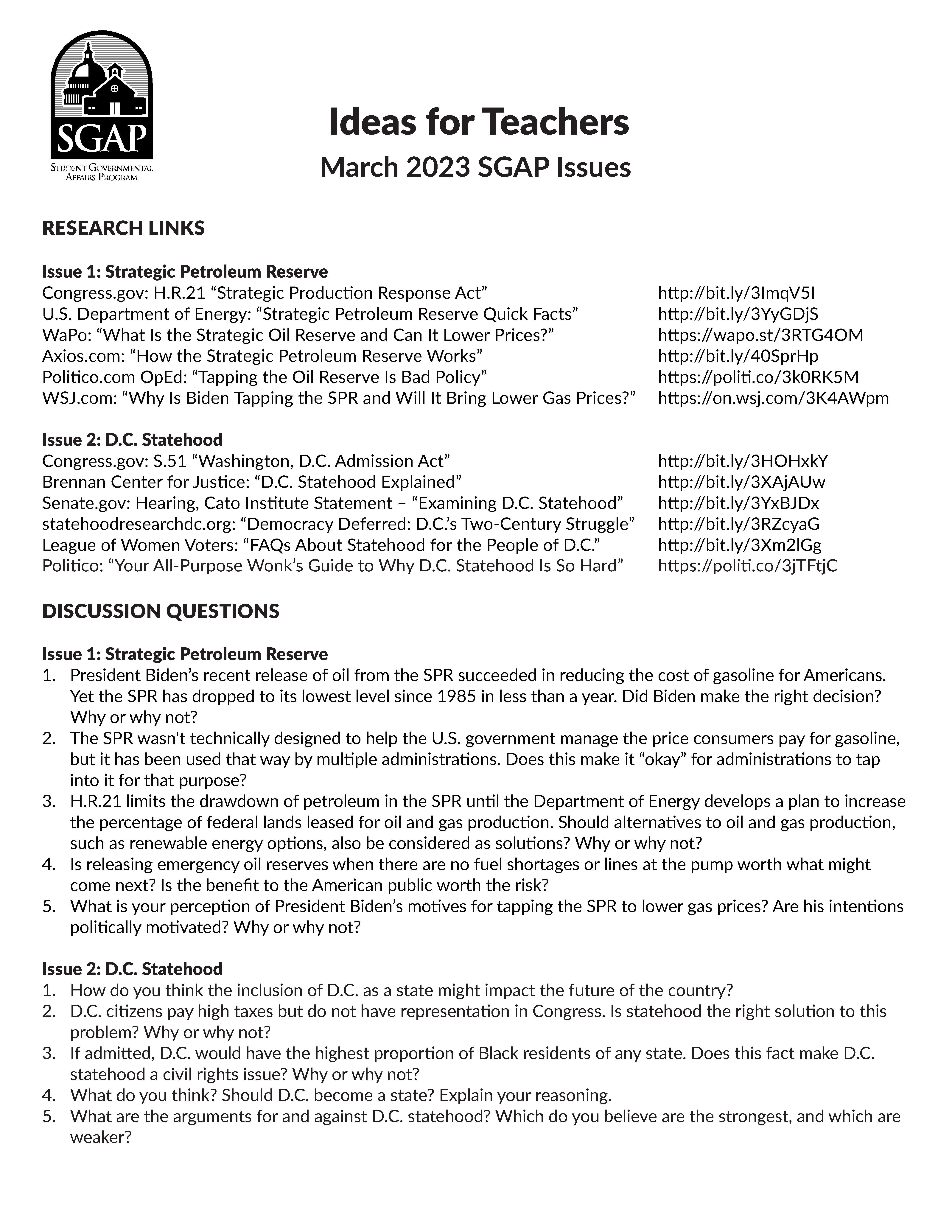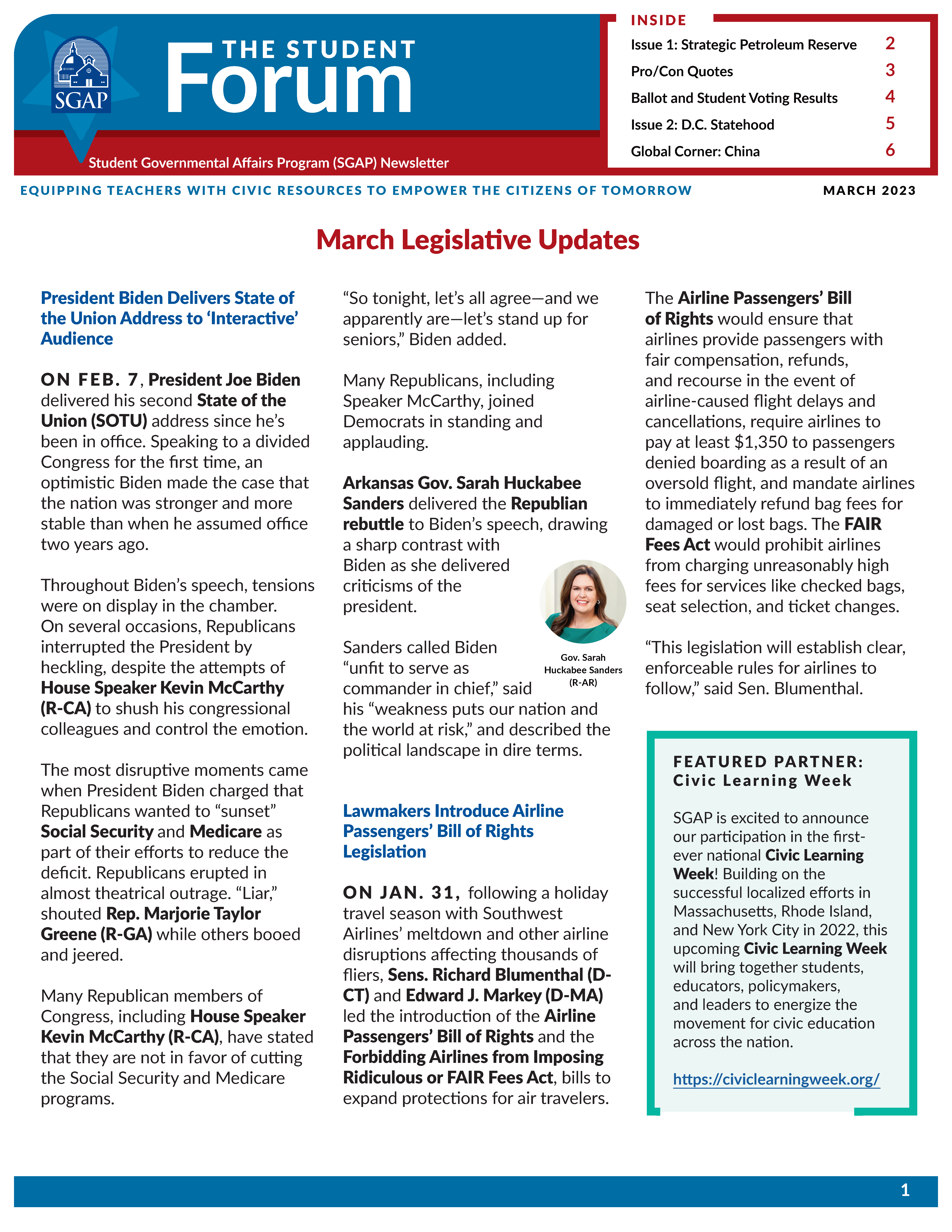RESEARCH LINKS
Issue 1: Gas Cars vs. EVs
Congress.gov: H.R.1435, “Preserving Choice in Vehicle Purchases Act”

GASOLINE-POWERED CARS are familiar, quick to refuel, and can travel long distances between fill-ups, all of which can’t (yet) necessarily be said about electric vehicles or EVs. However, EVs offer a unique set of positives, from an inherently exhilarating drive feel to a significantly less harmful impact on the environment.
CarMax.com: “Electric Cars vs. Gas Cars: What’s the Difference?”
CarandDriver.com: “Electric Cars vs. Gas Cars: Everything You Need to Know”
Autoweek.com: “Electric Cars vs. Gas Cars Pros and Cons”
ConsumerReports.org: “Will an Electric Car Save You Money?”
EnergySage.com: “Electric Car vs. Gas Car Environmental Impact”
EPA.gov: “Electric Vehicle Myths”
Issue 2: Student Loan Debt
USAToday.com: “Student Loan Forgiveness, Education Department Begins”
PBS.org: “Biden’s Student Loan Cancellation Plan Advances with Debate”
ProCon.org: “Student Loan Debt Elimination – Pros and Cons”
APNews.com: “Supreme Court Rejects Biden’s Student Loan Plan”
TheAtlantic.com: “Biden’s New Student Debt Strategy”
Center for American Progress: “What’s Next for Student Loan Borrowers?”
DISCUSSION QUESTIONS
Issue 1: Gas Cars vs. EVs
- What are the arguments for and against Congress passing a bill to prevent states from banning the sale of gas-powered cars? Where do you stand on the issue?
- How important is giving American consumers the power to choose whether they will purchase a gas-powered vehicle or an electric vehicle?
- What factors might make electric cars more expensive than gas cars initially? What factors might make electric cars more affordable over time?
- Let’s compare the Tesla Model 3 (electric) to the Toyota Camry XLE (gas). Which car do you believe costs more over all (to buy and to drive) over its full lifetime? Why?
- What infrastructure and resources are required to support mass adoption of electric vehicles in the U.S.? Is the cost worth the investment? Why or why not?
Issue 2: Student Loan Debt
1. Supporters of the Biden administration’s efforts to forgive student loan debt say it would deliver relief to debt-burdened households and lift the economy. Opponents, however, say it’s unfair to those who avoided debt or made sacrifices so they could repay their loans. Where do you stand on the issue? Explain your position.
2. Does student debt affect you or someone you know, and if so, how? What went into the decision to take on student debt? How do you (or they) feel about the decision now?
3. Would forgiving all or part of people’s student loan debt help narrow the racial wealth gap? Why or why not?
4. Some people think student loan debt should be “forgiven” and college tuition should be paid for by the government. Who would actually pay those costs?
5. Should people who chose not to attend college be forced to pay for others’ college education? Why or why not?



 Note: To open, view and download the PDF, right click on the above image and select “open in new tab.” Thanks.
Note: To open, view and download the PDF, right click on the above image and select “open in new tab.” Thanks.